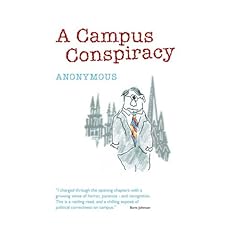David Colquhoun's blog "DC's Improbable Science" often takes issue with quack medicine. I noticed
this article on the spread of quack medicine quangos - it's well worth a read, as is the
article over at quackometer.', '
Two quango-style organisations are discussed: the Natural Healthcare Council and Skills for Health. The NHC (a nice authoritative sort of abbreviation, no?) has been set up by the Prince of Wales Foundation for Integrated Healthcare through funding from the Department of Health to regulate 12 alternative therapies, such as aromatherapy, reflexology and homeopathy. The problem here is that none of these mumbo-jumbo therapies work (other than via a placebo effect, I guess). Isn't this just money down the drain? And worse than that, should we encourage the public to genuinely believe these "therapies" offer any kind of real health benefit?
Skills For Health appears to be a real ticky-box mentality run riot. It offers competency descriptors for dubious alternative medicine practices, and is also informed in this endeavour by Prince Charles' Foundation for Integrative Health. How about this description of a homeopathy "skill competence":
"This unit applies to any practitioner whose work aims to optimise a person's health and well-being through homeopathy, in whatever clinical context they practise and whether they work from their own premises, in clinics, in hospitals, in mobile units or in the individual's home. The individuals with whom the practitioner works may be experiencing acute, sub-acute or chronic conditions, including terminal illness, or they may be seeking to optimise their health and well-being. The individuals for whom a homeopathic consultation is arranged, may be: unfamiliar with homeopathy; unknown to the practitioner; in an established working relationship with the practitioner for a short or long time, or returning to the practitioner after a period of discontinuing homeopathic consultations with them."
Doesn't this encourage homeopathic treatment of individuals suffering serious illness? It certainly isn't restricting homeopathic treatment to symptomatic relief (which the placebo effect might actually influence). One has to hope that the following quote (taken from the preceding unit) is intended to encourage consultation with real health care professionals, not those employing mumbo-jumbo techniques, and administering expensive (but very pure) water:
"Principles of good practice
This unit is based on the premise that for effective consultation to take place, the practitioner needs to understand the individual's personal, cultural and social situation and the holistic nature of health and social well-being. The practitioner must be able to communicate effectively with individuals and their companions and balance the information received about the individual's needs with other information gained during the consultation. As homeopathy may be used with other therapeutic approaches, the practitioner needs to be able to liaise effectively with other health care practitioners."
Offensive bureaucrat-speak
I am increasingly exposed to bureaucrat-speak in my professional life - it's spreading fast in HEIs. This snippet from Skills for Health, quoted by Colquhoun, is both typical and priceless:
“Competences are descriptors of the performance criteria, knowledge and understanding that are required to undertake work activities. They describe what individuals need to do, and to know, to carry out the activity -regardless of who performs it.”
Read more in Colquhoun's blog, and particularly in his wonderful telephone conversation about the identity of the authors of the "competence descriptors" (I particularly enjoyed the tree-hugging part). Hopefully his information request made under the FOI act will bear fruit.
Quack medicine and Higher Education
One worry for me is that with the increasing commercialisation of higher education, "business opportunities" will be identified to exploit those individuals influenced by the aura of respectability afforded by developments such as these. Apparently the NHC will only recognise qualified individuals - this will generate such "business opportunities".
Should Prince Charles back these moves?
I've no objections to Prince Charles holding bizarre beliefs. He's in an unfortunate position as future defender of the faith, I suppose. I don't however think he should be permitted to influence Government policy in this way: the outcome will be to wasted NHS resources, propagate bizarre mumbo-jumbo beliefs and endanger the health of the population.
 I don't read a lot of fiction, but this novel was quite appealing in its subject matter. Written by "Anonymous" (the author would appear to be auniversity academic), the novel is an accurately targeted satire on modern university politics and life. It was lent to me by a colleague, who'd bought it for holiday reading over Christmas.
I don't read a lot of fiction, but this novel was quite appealing in its subject matter. Written by "Anonymous" (the author would appear to be auniversity academic), the novel is an accurately targeted satire on modern university politics and life. It was lent to me by a colleague, who'd bought it for holiday reading over Christmas.
